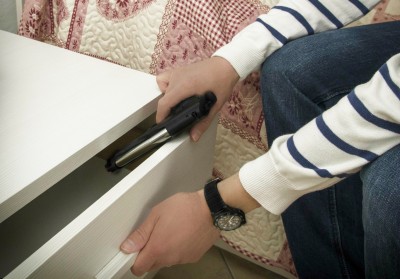 Two controversial San Francisco gun control laws have been up upheld in a federal appeals court, which ruled the laws do not infringe upon the Second Amendment.
Two controversial San Francisco gun control laws have been up upheld in a federal appeals court, which ruled the laws do not infringe upon the Second Amendment.
One law mandates that San Francisco gun owners keep their firearms disabled with a trigger lock or stored in a locked container when not being carried – a requirement that no doubt benefits criminals and home intruders. The law has both baffled and angered Second Amendment supporters nationwide. The enforcement of the law has also been called into question. Will merely owning a gun give police officers the power to enter a home at any time to inspect firearm storage habits?
Judge Sandra S. Ikuta of the US Ninth Circuit Court of Appeals noted in the gun control law opinion that gun safes can be opened quickly so the new requirements does not “substantially prevent law-abiding citizens” from using their guns to defend themselves in their homes. Of course, every second counts when faced with armed intruders. Grabbing a tabletop gun safe and opening it quickly in the dark will likely take far more time than the California justice has imagined, gun rights activists say. Some gun rights activists say the days of placing a gun in a nightstand for safety – assuming children aren’t around – are over.
Ikuta went on to write that the city of San Francisco exhibited that the trigger lock or locked container law “serves a significant government interest by reducing the number of gun-related injuries and deaths from having an unlocked handgun in the home.”
How to hide your guns, and other off grid caches…
The second gun control law in front of the federal appeals court involved a ban on the sale of hollow-point ammunition. Such ammo is designed to fragment or expand upon impact. San Francisco officials argued that hollow-point ammo is “more lethal” than other types of ammunition, and the judges agreed, ruling that “ordinary bullets” are as effective as hollow-points and that the law does not diminish the ability for self-defense. A bullet, by its very nature, is made to be lethal, so the argument about a degree of deadly capability has once again caused ire among gun owners and hunters.
The National Rifle Association had filed suit seeking to overturn both laws and said it will appeal the ruling. Said NRA attorney Chuck Michel:
We are hopeful that the Supreme Court will clarify that it meant what it said in its decisions from 2008 and 2010 — that the Second Amendment is not a second class constitutional right.
Michel was referencing two major Supreme Court cases, DC v. Heller (2008) and McDonald v. Chicago (2010), which combined together guaranteed the individual right to self-defense with a gun. The court in the DC v. Heller case ruled it was a “fundamental” and “deeply rooted” constitutional right.
Meanwhile, firearms controversy continues to brew in both California and the city as staunch gun control supporting Senator Leland Yee heads to court. The Democrat was caught in an FBI sting in San Francisco’s Chinatown with gun-running gang members. Yee has authored stiff gun control legislation. He is accused of asking for campaign donations in exchange for introducing a man Yee did not know was an undercover FBI agent to an arms trafficker.
Leland Yee and 25 other defendants were indicted on multiple gun trafficking charges which allegedly involve filtering arms from Russia to Chinese gang members. Keith Jackson, Senator Yee’s campaign aide, and a former San Francisco school board president and political consultant, were also indicted. The federal charges levied against the gun control advocating Democrat include the conspiracy to deal firearms without a license and the illegal import of firearms.
Sign up for Off The Grid News’ weekly email and stay informed about the issues important to you
 Off The Grid News Better Ideas For Off The Grid Living
Off The Grid News Better Ideas For Off The Grid Living




